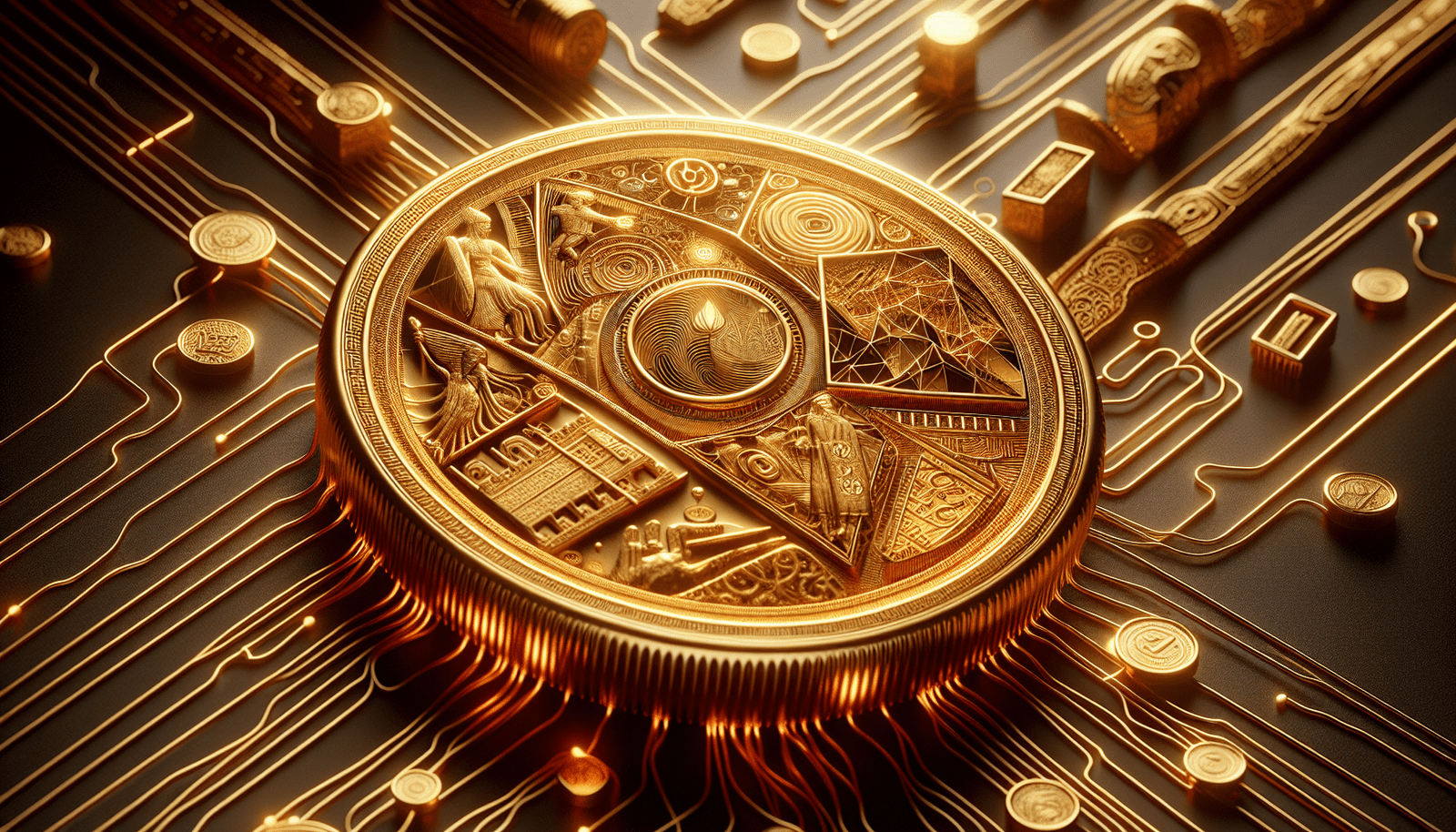The Evolution Of Gold Coins In Trade And Commerce
Have you ever wondered about the history and significance of gold coins in trade and commerce? Join us as we explore the evolution of gold coins and their impact on economies around the world.

The Origins of Gold Coins
Gold coins have been used as a form of currency for thousands of years, dating back to ancient civilizations such as Egypt and Mesopotamia. These early gold coins were typically made of naturally occurring gold nuggets that were shaped and stamped with intricate designs to represent their value.
Gold coins were valued not only for their beauty but also for their rarity and durability, making them a popular choice for trade and commerce. As civilizations grew and expanded, the use of gold coins became more widespread, leading to the development of standardized weights and measurements to ensure uniformity in trade transactions.
The Transition to Minted Gold Coins
In the 6th century BC, the first minted gold coins were introduced by King Croesus of Lydia, a region in modern-day Turkey. These coins were made from electrum, a natural alloy of gold and silver, and featured a design on one side and a simple punch mark on the other to indicate their authenticity.
The introduction of minted gold coins revolutionized trade and commerce by providing a more convenient and reliable form of currency. Unlike previous gold coins, minted coins were standardized in weight and purity, making them easier to use in commercial transactions and facilitating trade between different regions.
The Spread of Gold Coins in Ancient Civilizations
As the use of gold coins became more widespread, they played a crucial role in the growth and development of ancient civilizations such as Greece, Rome, and China. Gold coins were used to pay soldiers, purchase goods and services, and finance public works projects, helping to stimulate economic activity and facilitate trade both domestically and internationally.
In ancient Rome, gold coins such as the aureus and solidus were used to pay for goods and services, as well as to fund military campaigns and infrastructure projects. These coins were highly prized for their purity and durability, making them a symbol of wealth and power in Roman society.
The Gold Standard and Modern Currency
In the 19th century, many countries adopted the gold standard, which pegged the value of their currency to a specific amount of gold. Under this system, paper money could be exchanged for a fixed quantity of gold, providing stability and confidence in the value of the currency.
The gold standard played a crucial role in international trade and commerce by creating a common benchmark for valuing currencies and facilitating exchange between countries. However, the system was eventually abandoned in the 20th century due to the limitations of the gold supply and the need for more flexible monetary policies.

The Role of Gold Coins in Investment
In addition to their historical significance in trade and commerce, gold coins continue to be valued as a popular investment option for individuals and collectors. Gold has long been seen as a safe haven asset during times of economic uncertainty, making it a reliable store of value and a hedge against inflation.
Gold coins are available in a variety of sizes and denominations, making them accessible to a wide range of investors with different budget constraints. Whether you are looking to diversify your investment portfolio or simply enjoy collecting rare coins, gold remains a timeless and highly coveted asset in today’s financial markets.
Types of Gold Coins
There are several types of gold coins available for purchase, each with its own unique characteristics and value proposition. Some of the most popular types of gold coins include:
Bullion Coins
Bullion coins are issued by governments and central banks for investment purposes, with their value primarily based on the weight and purity of the gold content. Examples of bullion coins include the American Gold Eagle, Canadian Gold Maple Leaf, and South African Krugerrand.
Historic Coins
Historic gold coins are collectible coins that are no longer in circulation and are valued for their rarity, historical significance, and unique designs. Examples of historic coins include the Roman aureus, the British Sovereign, and the Swiss Vreneli.
Proof Coins
Proof coins are specially minted coins with a high level of detail and craftsmanship, making them highly sought after by collectors. These coins are often issued in limited quantities and come in protective cases to preserve their pristine condition.
Commemorative Coins
Commemorative coins are issued to celebrate special events, anniversaries, or historical milestones, and often feature unique designs and engravings. These coins are popular among collectors and make for great gifts or keepsakes.
How to Buy and Sell Gold Coins
If you are interested in buying or selling gold coins, there are several options available to you depending on your investment goals and budget. Here are some common ways to acquire gold coins:
Local Coin Shops
Local coin shops are a great place to start if you are looking to buy or sell gold coins in person. Coin shops often have a wide selection of coins to choose from and can provide expert advice on the value and authenticity of the coins you are interested in.
Online Retailers
Online retailers offer a convenient way to browse and purchase gold coins from the comfort of your home. Many reputable dealers have websites where you can view their inventory, compare prices, and place orders for delivery to your doorstep.
Auction Houses
Auction houses such as Sotheby’s and Christie’s hold regular auctions featuring rare and collectible gold coins from around the world. Participating in an auction can be an exciting way to acquire unique coins and connect with other collectors in the industry.
Precious Metals Dealers
Precious metals dealers specialize in buying and selling gold, silver, and other precious metals for investment purposes. These dealers often offer competitive prices and can provide guidance on market trends and investment strategies for your portfolio.
Storing and Protecting Your Gold Coins
Once you have acquired gold coins for investment or collection, it is important to store and protect them properly to maintain their value and condition. Here are some tips for storing and protecting your gold coins:
Use Protective Cases
Invest in protective cases or holders to store your gold coins and prevent them from getting scratched or damaged. These cases can also help preserve the coins’ luster and prevent tarnishing over time.
Store in a Safe Place
Store your gold coins in a secure and discreet location, such as a home safe or safety deposit box at a bank. Avoid storing coins in areas with high humidity or temperature fluctuations, as this can degrade the quality of the coins over time.
Insure Your Collection
Consider insuring your gold coin collection against theft, loss, or damage to ensure that your investment is protected in the event of an unforeseen event. Many insurance companies offer specialized coverage for valuables such as rare coins and collectibles.
Regular Maintenance
Inspect your gold coins regularly for signs of wear, discoloration, or damage, and clean them gently with a soft cloth or brush if necessary. Avoid using harsh chemicals or abrasive materials that could tarnish or corrode the surface of the coins.
Conclusion
The evolution of gold coins in trade and commerce has played a significant role in shaping the global economy and financial markets throughout history. From their origins in ancient civilizations to their continued popularity as an investment asset, gold coins remain a symbol of wealth, power, and prestige in today’s society.
Whether you are a seasoned investor looking to diversify your portfolio or a passionate collector interested in rare and historic coins, gold coins offer a tangible and enduring way to own a piece of history and preserve your wealth for generations to come. Start your journey into the world of gold coins today and discover the timeless allure and value of these precious metal treasures.
